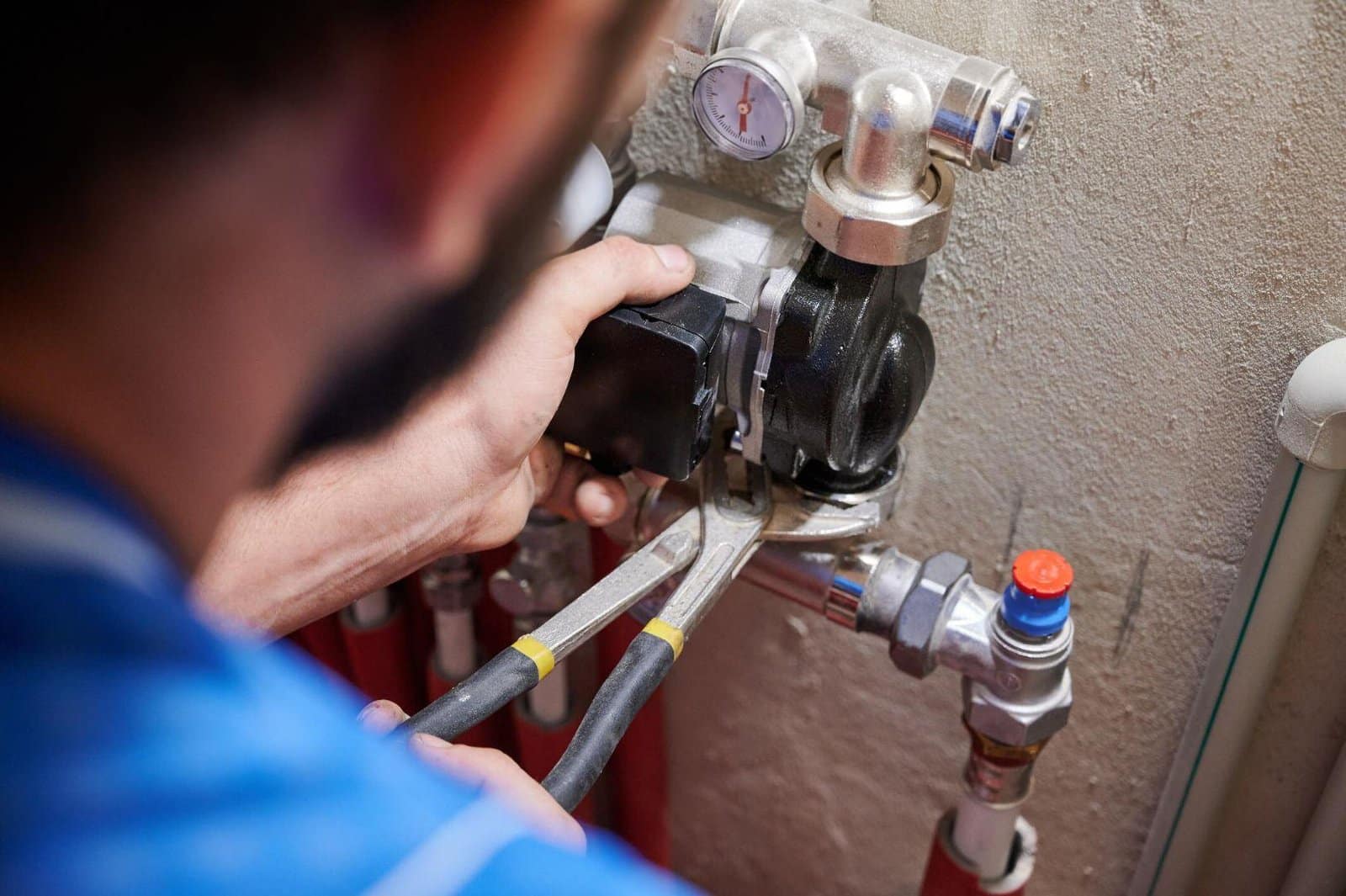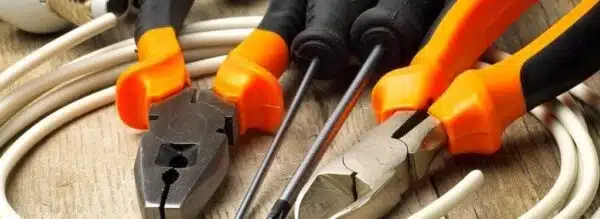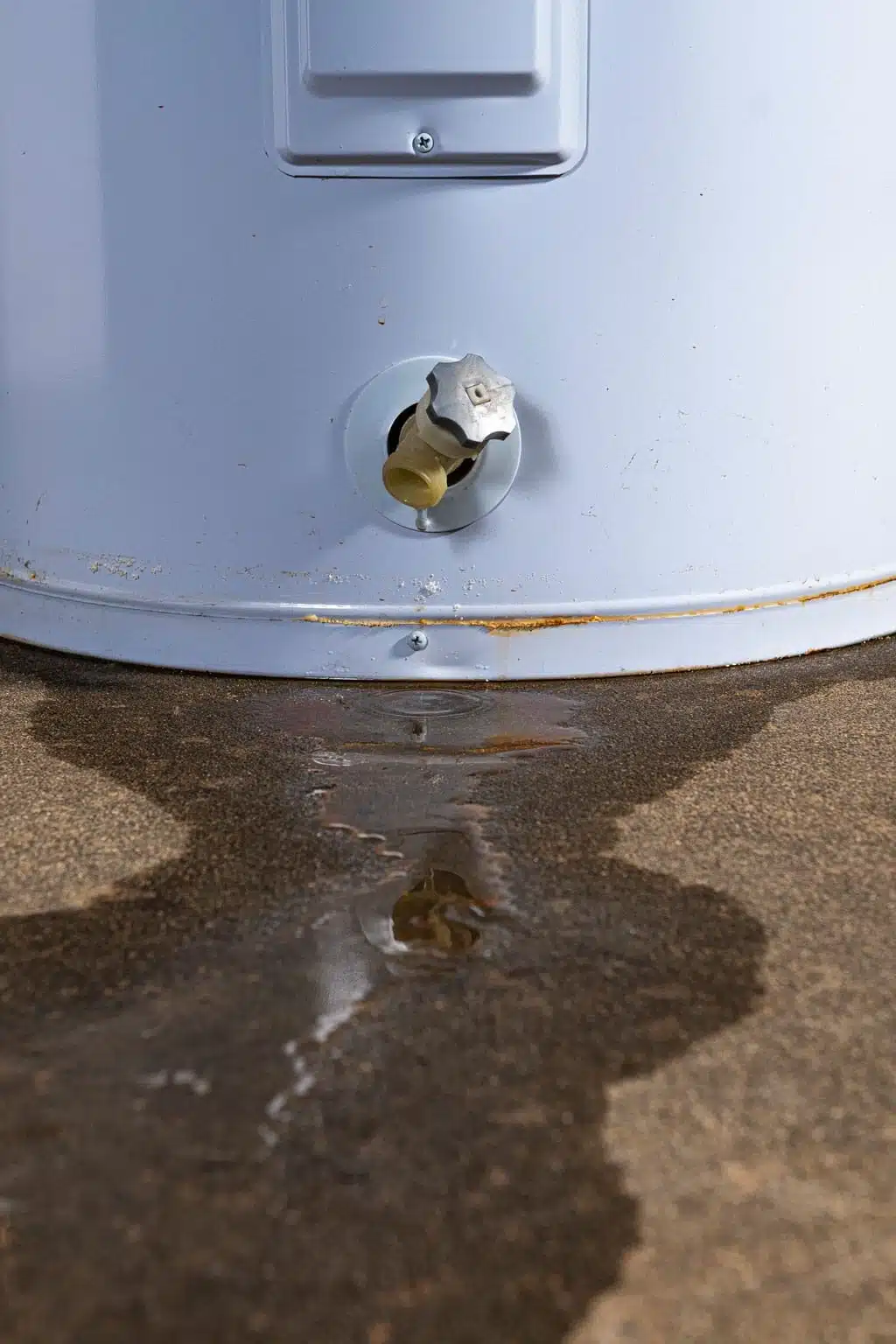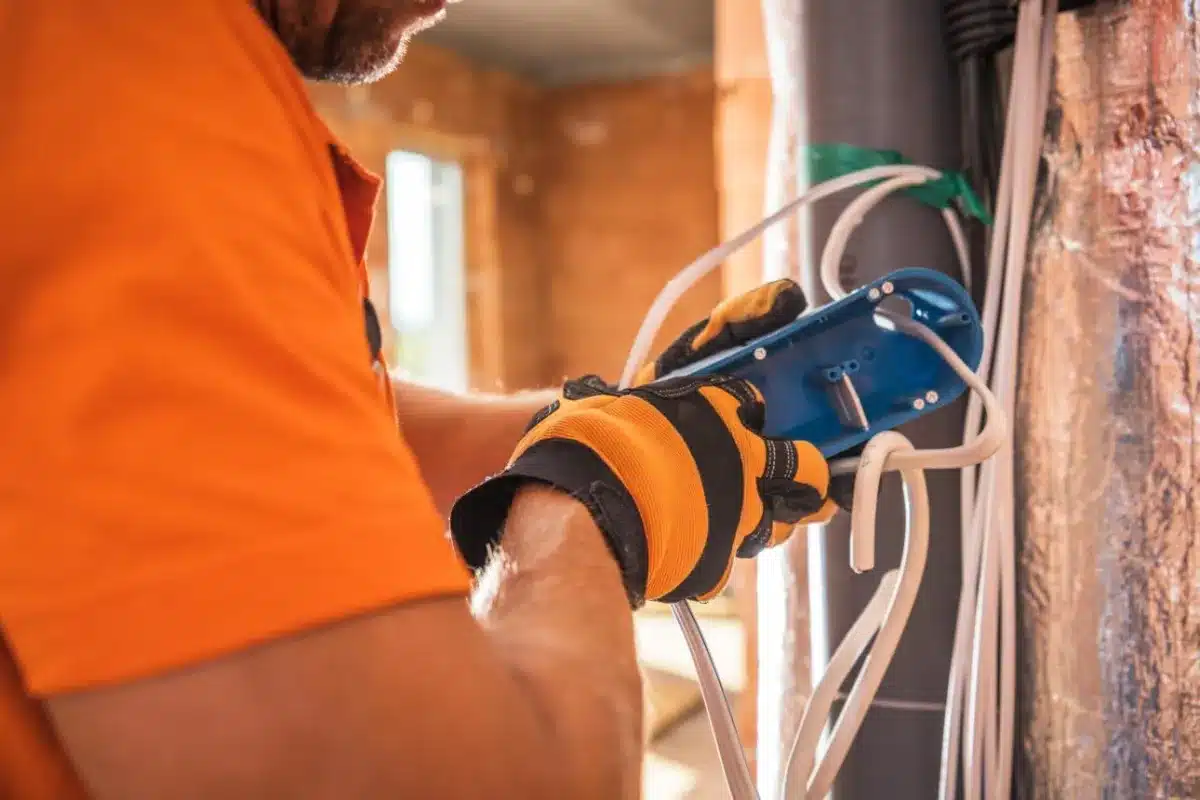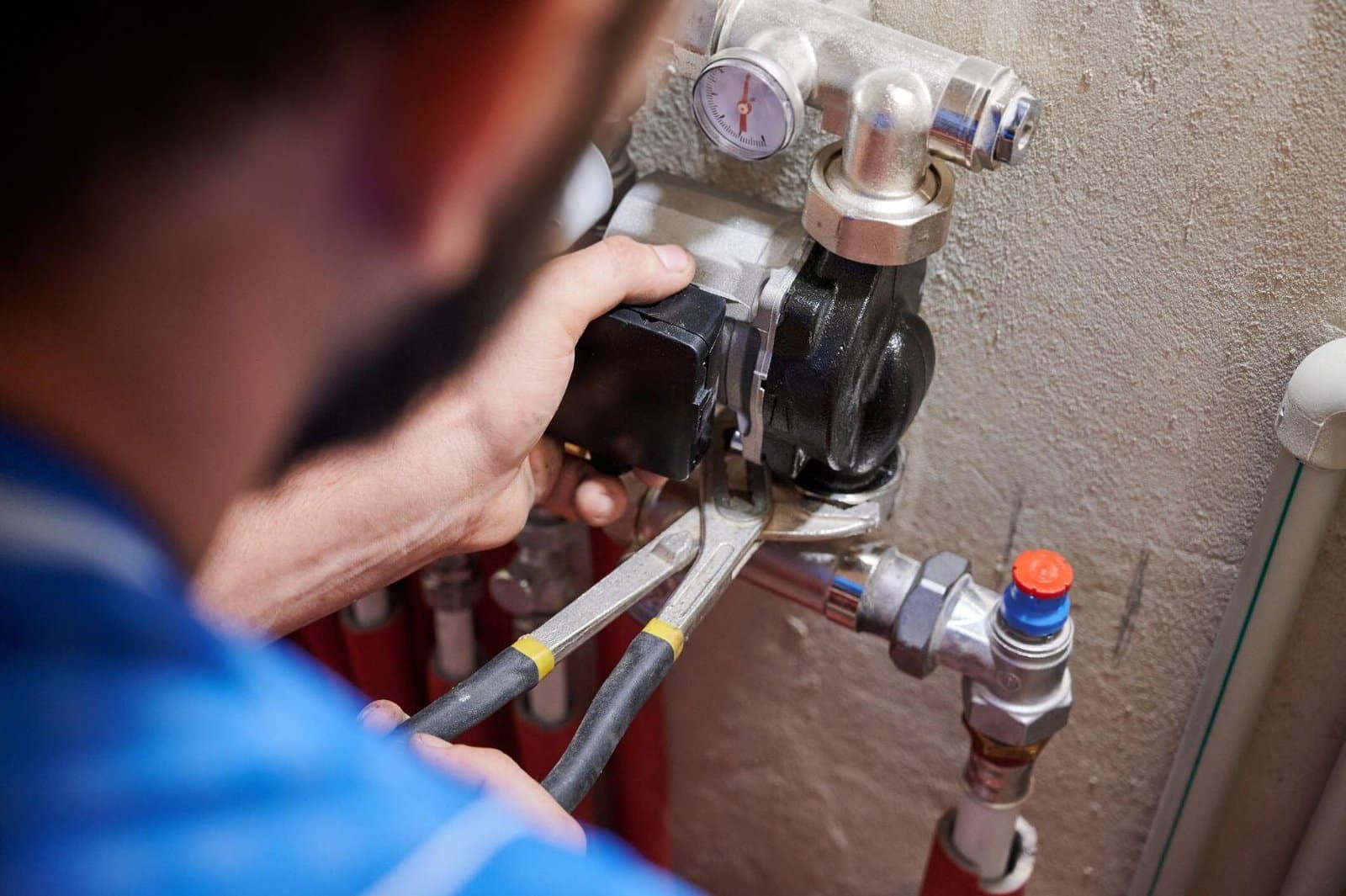Have you ever been startled by a sudden electrical spark, or worried about faulty electrical wiring in your home? Don’t let the fear of electrical hazards keep you up at night. At Tioga Plumbing & Electric, we specialize in safe and reliable electrical wiring, and you can reach us at (682) 224-0757 for all your electrical needs.
What is Electrical Wiring and Why is it Important?
Electrical wiring is crucial for any modern home, facilitating the operation of lights, appliances, and devices through a network of wires and circuits.
Understanding this system is essential for homeowners to manage repairs, and upgrades, and ensure safety. The wiring system includes conductors and components that distribute electricity throughout a building, from outlets to switches.
Proper installation and maintenance of electrical wiring prevent issues like fires or electrical shocks, highlighting the importance of regular checks and upgrades.
The Basics of Home Electrical Systems
Every home’s electrical setup begins with a main service panel, or breaker box, which distributes electricity from the grid to various circuits. Each circuit is protected by a breaker to prevent overload and damage.
Wires run from the breaker box to outlets, switches, and fixtures across the home, powering appliances and lighting.
Adhering to safety codes and guidelines, such as those in the National Electrical Code (NEC), is vital for ensuring that the installation is safe and compliant.
Types of Electrical Wiring Used in Homes
Understanding Different Wiring Materials
Electrical wiring in homes varies greatly. While copper wiring is common due to its conductivity and flexibility, it is just one option available.
Different materials have been designed for specific uses, helping homeowners make informed decisions for construction or repairs.
Aluminum was once popular but is less favored now due to safety concerns, although it can still be safe with correct installation. Rare materials like silver and gold are used in specialized cases where high conductivity and corrosion resistance are needed.
The Pros and Cons of Aluminum vs. Copper Wiring
Copper wiring is preferred for its high conductivity and durability, offering efficient electricity transport and minimal expansion with temperature changes. Despite its higher cost, copper’s longevity makes it a worthwhile investment.
Conversely, aluminum wiring is lighter and was historically cheaper, but it faces issues like oxidation and corrosion, increasing the risk of loose connections and fire hazards.
Electrical Wiring Safety Standards
Electrical wiring safety standards are vital for avoiding accidents and ensuring a functional home environment. Regular awareness of your home’s wiring condition, like noticing flickering lights or buzzing sounds, is crucial for identifying potential issues.
National Electrical Code (NEC) Compliance
The National Electrical Code (NEC) is a critical document that outlines the standards for safe electrical design, installation, and inspection in the United States to safeguard people and property from electrical hazards.
Compliance with the NEC is not just a best practice but a legal requirement in many areas, aimed at preventing severe risks such as electrical shocks, fires, and other safety hazards.
Importance of Proper Insulation and Grounding
Proper insulation and grounding are foundational elements of electrical safety. Insulation serves as a barrier to prevent human contact with electrically charged wires and components, thereby reducing the risk of shocks.
Grounding provides a controlled pathway for electric currents to follow back to the ground in case of a fault, significantly lowering the risk of severe shocks or fire.
In many older homes, the insulation and grounding may not meet current safety standards, which can pose considerable risks.
Homeowners are advised to hire professional electricians to assess the insulation and grounding of their electrical systems.
These professionals can identify and rectify deficiencies, ensuring that the systems meet or exceed current safety standards and provide effective protection against electrical hazards.
DIY Electrical Wiring vs. Professional Installation
The temptation to tackle DIY projects is strong, given the wealth of online resources. Handling small tasks like replacing light fixtures or installing dimmer switches might feel manageable and rewarding.
However, electrical work poses significant risks, making it important to distinguish between projects suitable for DIY and those that require professional expertise.
When to DIY and When to Hire a Professional
For simple tasks such as replacing a light fixture or an outlet cover, DIY might be appropriate if you possess a basic understanding of electrical safety. These projects generally involve straightforward procedures with little risk when done correctly.
Conversely, more complex undertakings such as installing new circuits or rewiring parts of your home should be left to professionals.
These tasks demand specialized skills and knowledge of electrical codes to avoid severe hazards like electrical shocks or fire.
Risks Involved in DIY Electrical Wiring
Engaging in DIY electrical projects can expose you to dangers like electrical shock or fire, especially if you mishandle live wires or improperly ground your system.
Even small errors can lead to serious consequences, including damage to appliances, repeated tripping of circuit breakers, and potential fires from faulty wiring or overloaded circuits.
For homeowners, poor electrical work may also result in failed inspections and decreased property value. Prioritizing safety and knowing when to hire a professional is essential to mitigate these risks.
Signs Your Home Needs Rewiring
Electrical wiring doesn’t last forever. As your home ages, so does its wiring, leading to potential hazards and inefficiencies. But how do you know when it’s time to consider rewiring? Recognizing the signs of aging wiring and other issues can save you from costly repairs—or worse, a dangerous accident. Here are the telltale signs that it’s time to give your electrical system a fresh start.
Aging Wiring and Potential Hazards
Homes over 40 years old may have outdated electrical wiring that poses safety risks, such as aluminum, knob-and-tube, or ungrounded systems.
These can cause overheating, corrosion, and insulation degradation, leading to fires or electrical shocks. Signs like exposed wires, worn-out insulation, charring near outlets, frequent circuit breaker trips, or flickering lights indicate the need for rewiring.
Symptoms of Faulty Electrical Wiring
To catch problems before they escalate, watch for these symptoms:
Frequent Circuit Breaker Trips: Regular trips suggest overloaded circuits or short circuits due to faulty wiring.
Flickering or Dimming Lights: These may signal voltage fluctuations from loose connections or overloaded circuits.
Discolored Outlets or Switches: Brown or black marks indicate overheating from loose connections or faulty wiring.
Burning Smell or Sparks: These are serious signs of potential fire risks and need immediate attention.
Electrical Shocks: Shocks when touching outlets or switches suggest improper grounding or faulty wiring and require professional evaluation.
The Process of Rewiring a House
Rewiring a house is no small task. If you’ve recently discovered that your home needs rewiring, you might be wondering what to expect during the process.
It’s not just about pulling out old wires and replacing them with new ones; rewiring involves careful planning, precise execution, and a deep understanding of electrical systems.
Here’s a breakdown of what you can expect when rewiring a home, from the initial assessment to the final touches.
What to Expect During a Home Rewire
Rewiring a house is a comprehensive project that involves several critical steps. Here’s what you can expect:
Comprehensive Assessment: A qualified electrician begins by assessing the existing wiring to identify any faulty wiring and safety hazards.
Detailed Planning: Based on the assessment, a detailed plan is created that outlines the new wiring paths and necessary updates.
Actual Rewiring: The process involves removing old wires and installing new ones, often requiring access through walls, ceilings, or floors. This stage can be quite messy, though electricians work to minimize disruption and damage.
Safety and Compliance: Safety is paramount during rewiring. The new installation undergoes thorough testing to ensure compliance with the National Electrical Code (NEC).
Restoration: After the wiring is complete, any structural damage caused during the rewiring is repaired to restore the aesthetics of the home.
Estimated Time and Costs Involved
The duration of rewiring varies by home size and complexity, ranging from a few days to several weeks. Costs also vary, influenced by the home’s size, project complexity, and material quality.
Despite the significant investment, the benefits of rewiring—a safer, more efficient home compliant with modern standards—are considerable, potentially increasing your home’s value and providing peace of mind.
Choosing the Right Electrical Wiring for Your Home
Finding the right solution for your home’s power needs can be daunting. With so many elements to consider, it’s easy to feel overwhelmed.
Whether you’re building a new home or enhancing an existing system, the choices you make about cabling will have a major impact on safety, efficiency, and long-term reliability.
Here’s a guide to the key considerations for new construction and the best approaches for updating your home’s current setup.
Factors to Consider for New Construction
When building a new home, evaluating your power requirements is essential. This involves considering the number of rooms, the types of appliances you plan to use, and any special features like home theaters or workshops that might require additional power.
Opt for copper wiring for its excellent conductivity and durability; however, aluminum wiring can be a cost-effective alternative if budget constraints are a priority.
Additionally, it’s important to future-proof your home by planning for potential technological additions, such as smart home systems or renewable energy sources.
Ensure all electrical planning and installation adhere to the National Electrical Code to maintain safety and regulatory compliance.
It’s also wise to consult with a professional electrician to optimize the design and functionality of your electrical systems, allowing for scalability and flexibility as your needs evolve.
Upgrades for Existing Electrical Systems
Upgrading an existing electrical system is crucial for older homes to meet current standards and accommodate modern electrical loads. Start by assessing the age and condition of your existing wiring and consider replacing outdated or deteriorated wires.
Adding new circuits or expanding the electrical panel may be necessary to support additional appliances, home office setups, or smart home technologies.
Focus on improving energy efficiency by replacing old cables with modern, high-efficiency wiring and incorporating energy management systems to monitor and control power usage.
Such upgrades not only enhance safety by reducing the risk of electrical hazards but also improve the overall energy efficiency of your home.
Consultation with a licensed electrician who can provide tailored advice and ensure that all work is done according to current electrical codes and standards is essential.
Innovative Trends in Electrical Wiring
The world of electrical wiring has transformed with the emergence of new technologies and a growing emphasis on sustainability. Homeowners are now integrating smart systems, energy-efficient solutions, and eco-friendly materials into their homes.
Let’s explore two significant trends shaping modern electrical systems: smart home technologies and eco-friendly, energy-efficient wiring solutions.
Smart Home Technologies and Electrical Wiring Needs
Smart home technology enhances households with features like voice-activated assistants and automated lighting. For optimal use, the electrical system must support networked devices, which may require additional wiring, specialized outlets, and considerations such as:
Dedicated Circuits: Necessary for devices like security systems to ensure stable power.
Structured Wiring Systems: A combination of cables for comprehensive support and future expansions.
Smart Switches and Outlets: Allow remote management of appliances and lighting through smartphones or voice assistants.
Eco-Friendly and Energy-Efficient Electrical Wiring Solutions
As environmental awareness grows, eco-friendly and energy-efficient electrical wiring is becoming crucial. Innovations include:
Sustainable Materials: Use recyclable materials like copper, which maintains its properties even when recycled.
Energy-Efficient Design: Minimizes energy loss through optimized electrical wiring and safety features like GFCIs and AFCIs.
Smart Technology Integration: Automates energy management, with systems that adjust lighting and temperature based on usage, enhancing overall energy efficiency.
Electrical Wiring Maintenance
Keeping your home’s electrical wiring in good condition is crucial for safety and efficiency. Over time, wires can deteriorate, connections can loosen, and components can become outdated.
Regular maintenance helps prevent electrical issues from escalating into dangerous situations or costly repairs. Here’s what you need to know about routine checks, maintenance tips, and ways to prevent common electrical issues.
Routine Checks and Maintenance Tips
Routine checks help prevent electrical hazards by identifying minor problems early. Key areas to inspect include:
Outlets and Switches: Check for wear such as discoloration, loose connections, or cracks. Warm outlets or sparks when plugging in devices indicate a need for professional inspection.
Circuit Breakers: Ensure they trip correctly to prevent overloads. Frequent trips may suggest issues like overloaded circuits.
Appliance Checks: Look for frayed cords and ensure appliances don’t trip breakers or cause flickering lights.
Regular maintenance should also involve cleaning electrical components to reduce fire risks. Never ignore warning signs like unusual smells or sounds; consult a professional electrician for these issues.
How to Prevent Common Electrical Issues
Preventing electrical issues involves routine maintenance and understanding potential problems:
Avoid Overloading Circuits: Use multiple circuits instead of overloading one with multiple devices.
Proper Grounding: Ensure your electrical system is grounded to avoid shocks and fires.
Install Surge Protectors: Protect devices from power surges with individual or whole-house surge protectors.
DIY Caution: Leave complex electrical tasks to professionals to avoid risks.
Regular Inspections: Schedule inspections with a professional electrician to address hidden issues and compliance with codes.
Tioga Plumbing & Electric: Your Trusted Electrical Wiring Experts
Our team prioritizes your safety and satisfaction, ensuring a smooth and transparent process from start to finish.
Why trust us? Our skilled electricians are not just technicians; they are approachable professionals who take the time to explain each step of the process, ensuring you feel confident and informed.
We adhere to the latest industry standards and safety regulations, bringing expertise and reliability to every job.
Don’t let electrical problems disrupt your life. Contact Tioga Plumbing & Electric today at (682) 224-0757 for top-notch service and peace of mind.
We’re ready to tackle any electrical challenge, big or small, with precision and care. Your safety and excellent service are our promises to you.
FAQs on Electrical Wiring
How Often Should Home Electrical Wiring Be Checked?
Home electrical systems should be inspected every three to five years by a licensed electrician, especially in older homes or those with known electrical wiring issues, to ensure safety and compliance with codes.
What Are the Signs That My House Needs Rewiring?
Signs that your home may need rewiring include frequent circuit breaker trips, fuses blowing, flickering lights, buzzing outlets, or a burning smell near electrical components. Contact a professional immediately if these issues arise.
Is It Safe to Update Electrical Wiring in an Old Home by Myself?
Updating electrical wiring in an old home is risky and can lead to electrical shocks or fire hazards. It’s best to hire licensed professionals who are familiar with building codes and electrical systems.
How Can I Make My Home’s Electrical System More Energy-Efficient?
For greater energy efficiency, upgrade to LED lighting, install energy-efficient appliances and use smart systems or timers. Consult with a professional electrician to optimize your home’s wiring.
What Should I Do If I Suspect My Home Has Outdated Wiring?
If you suspect outdated wiring in your home, immediately arrange for a licensed electrician to conduct an inspection. They can assess the condition of your wiring and provide guidance on necessary updates for safety and efficiency.
Taking a bite out of Your Plumbing & Electrical needs
Other Electrical & Plumbing Services

Taking a bite out ofYour Plumbing & Electrical needs
We make fixing your home easier than ever. Whether it’s a leaky pipe, faulty wiring, or an urgent repair, our experts deliver fast, reliable solutions you can count on.











